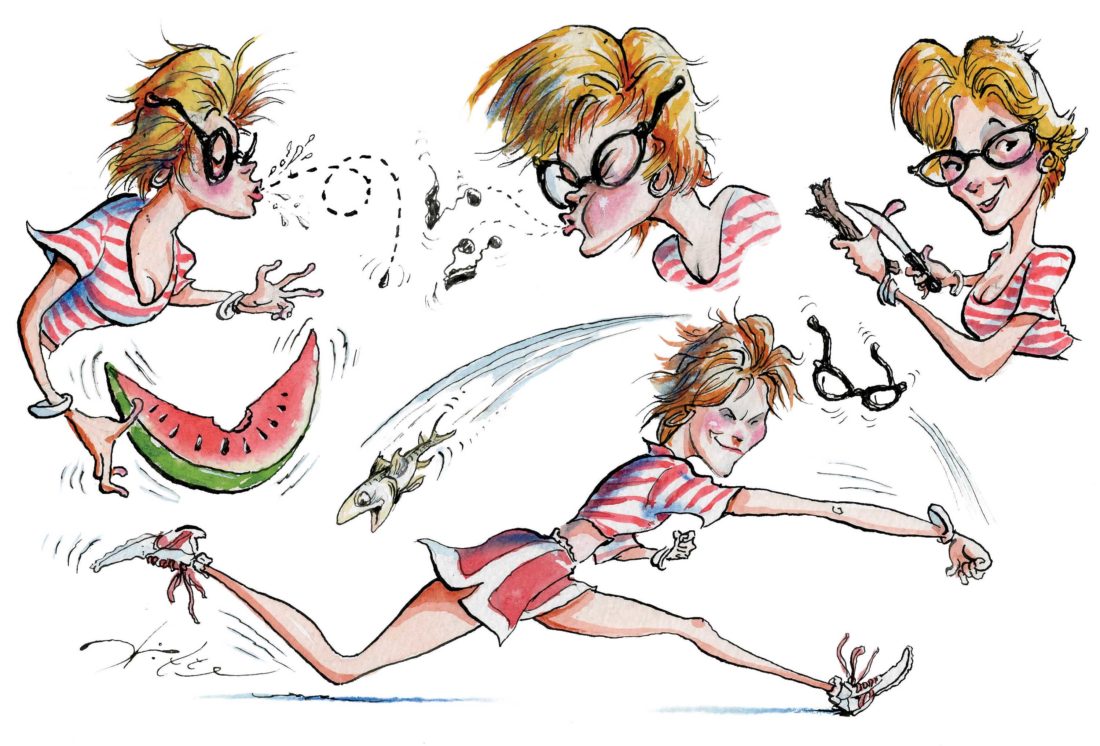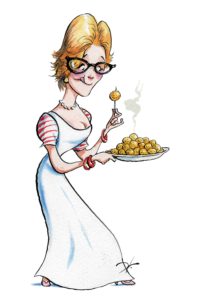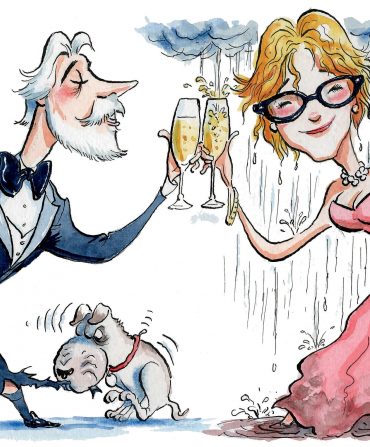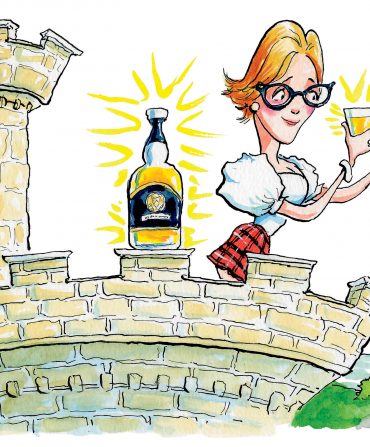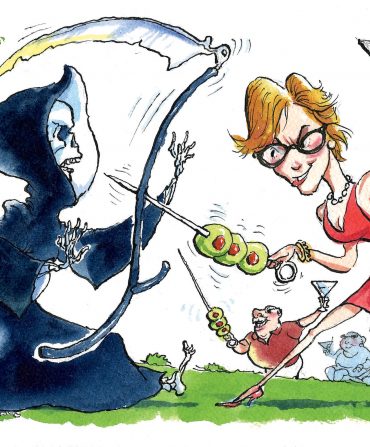In June 1980, the inaugural year of the Mississippi Picnic in Central Park, a group of us made the trek to Manhattan from Washington, D.C., where I was attending college at Georgetown. Our crew included: D. Gorton, the talented New York Times photographer who had grown up in my hometown of Greenville, Mississippi; two of my roommates; and Joe Hemingway, a flamboyant character and
transplanted Mississippi Delta fixture who originally hailed from the boot heel of Missouri. Sadly no longer with us, Joe was one of those people who made you feel as though you’d been on intimate terms with him all your life (though you never knew how it was exactly that you knew him), and, like Zelig, he popped up everywhere. For whatever reason, he’d popped up in Washington for most of that summer, and it was his idea to repair to the picnic, an affair put on by a handful of New York–based expats “to preserve the culture and heritage of Mississippi.”
Our own collective goal was rather more simple—to get out of town and have a little fun. So to that end (and under Joe’s typically over-the-top direction), we brought along an Oriental rug as our blanket, a silver ice bucket and pitchers for the Bloody Marys, baskets loaded with pâtés and fruit and cheeses from the much-missed Neam’s Market, and an ice chest filled with wine and champagne. There were about five hundred folks in attendance that first year, but we spread out in the shade and generally kept to ourselves. Mississippi, I’ve often said, is made up of more tribes than Bosnia, and we Deltans have been known to flaunt our perceived superiority (aided in this case by my grandmother’s silver and a frayed entrance-hall carpet). Our former senator Trent Lott, who was born in the hills and raised on the coast (and who, in later years, attended the picnic), once described my fellow tribe members as people who read the New Yorker.
Now, I happen to be crazy about Trent and he knows it, and when he uttered that line, in a British accent no less, I got his point. Still, I have to say that in all my years growing up in the Delta I never, ever saw anyone engage in a watermelon-seed-spitting contest, one of the activities featured at the picnic. I was agog. Was this an actual pastime in the rest of the Magnolia State? I mean, I love watermelon as much as the next person (in fact, had we been thinking clearly, we would’ve injected one with rum and toted it along), but when I find the occasional seed in my mouth, I discreetly drop it in a napkin, I do not attempt to send it as far as possible into the distance. Yet here was Mayor Ed Koch being cheered on as he engaged in an enterprise that became an annual fixture at the event.
We did not participate in the contest, nor did we accept the glasses of sweet tea on offer (let the record forever show that I cannot abide the taste of sweet tea). Instead, we piled in the car with D. and headed downtown to the very cool Greenwich Village townhouse of some Columbia professors he knew who were throwing a party. Let me say first that they regarded our now fairly sodden appearance with the same wariness (and not just a little disdain) with which we had regarded the seed spitters. This was 1980, don’t forget, so there was lots of warm white wine and some hash brownies, and in the middle of the living room a bathtub had
been filled with melted chocolate in which a nude woman bathed. In retrospect, she might well have been my first experience with performance art. Whatever. It was a hell of a lot more interesting than watching people launch seeds from their mouths, a ludicrous undertaking that might be referred to as Peckerwood Performance Art, along the same lines as, say, the annual mullet toss at the justifiably revered Flora-Bama bar, or indeed the screaming contest that was add-
ed to the picnic roster as a tribute to the Mississippi-born Tennessee Williams (all the screamers were told to make like Marlon Brando and shout “Stella!”).
Let me hasten to add that I’m not so much of a snob that I would object to a contest that allows people to let off a little aggression, and I am a big fan of the mullet toss. Its utter ridiculousness elevates it to high art, plus it’s fun to get drunk and watch people try to throw slippery fish around in the name of the late great Kenny Stabler. But I had to wince when one of the founders of the picnic told the Jackson, Mississippi, Clarion-Ledger that “from the beginning…our goal was to change perceptions New Yorkers had from the ’60s.” This is the kind of stuff that brings out the worst in me, so I’ll apologize up front, but my first thought was “Nope,
we don’t lynch people anymore, we’re too busy hollering and spitting out watermelon seeds.”
Further, the perception of folks in New York (where I lived for almost twenty years) was probably not aided by the passage of the so-called “Religious Freedom” bill, a piece of legislation that promises that citizens who refuse to provide services to people because of religious opposition to transgender people, extramarital sex, or same-sex marriage will not be punished. The law, recently upheld by the Fifth U.S. Circuit Court of Appeals, effectively killed the Mississippi Picnic, which the founders canceled in 2016, the year the bill passed. They have since announced that the event, which had grown to include more than three thousand picnickers, will not be resurrected, and now I’m sort of sorry I never returned after that first summer. Perhaps it was because I’ve really never been very good at the talents, peckerwood or most others, that we Southerners are supposed to possess.
I do not whittle, for example, nor have I ever been able to whistle—“Dixie” or otherwise. I used to smoke, but I draw the line at chewing (or spitting) tobacco and cannot for the life of me play the spoons. I would probably make biscuits, except that the good people at Marshall’s and Callie’s and Mary B’s make it easy not to. (Similarly, my former Greenville next-door neighbor once won the Mississippi Picnic pie contest by submitting a pecan pie baked by the esteemed Upper West Side bakery Sarabeth’s.)
The one extremely useful and extraordinarily delicious Southern skill I have mastered is the making of cheese straws—and by that I do not mean the kind sold at Sarabeth’s and countless other Manhattan emporiums that persist in selling twists of puff pastry glazed with cheese and calling them straws. A true cheese straw is an ineffable combination of butter and cheese and flour that melts in your mouth and is a de rigueur addition to every Southern cocktail hour. The only thing better might be a hot cheese olive, made with the same dough. They are the perfect briny, cheesy bites (otherwise known as a salt-and-fat delivery system), as well as my tiny but successful attempt to redeem the reputation of my home state. The New Yorkers I served them to never failed to chase the trays around.


